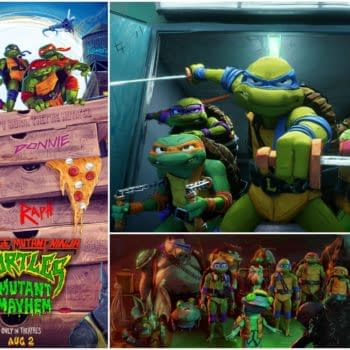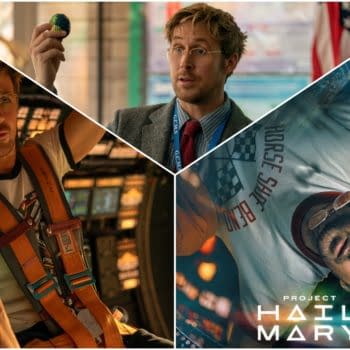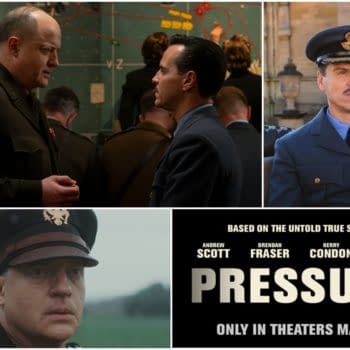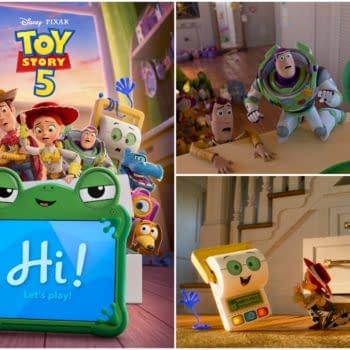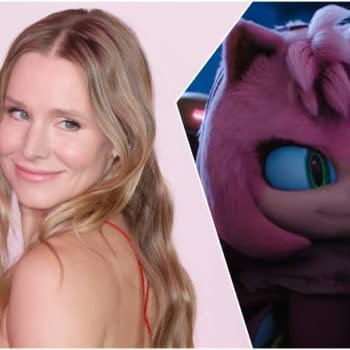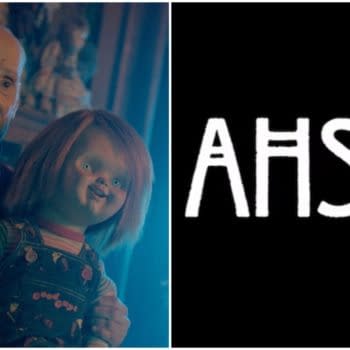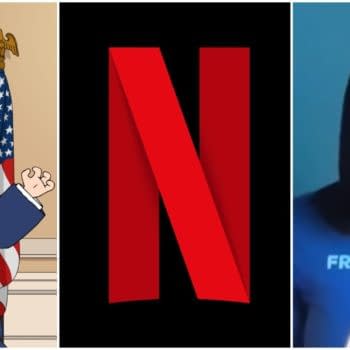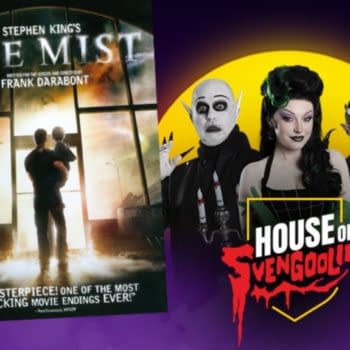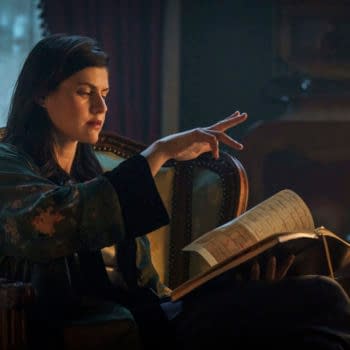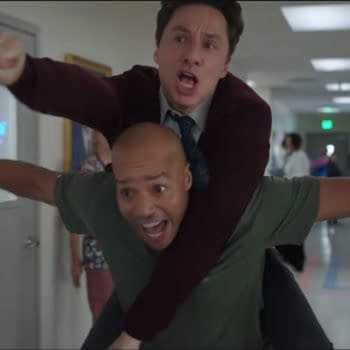Posted in: Disney+, Marvel, TV | Tagged: disney, loki, marvel, netflix, the falcon and the winter soldier, tv, WandaVision
Marvel Studios Needs to Stop Worrying and Embrace the Binge Model
The release of Loki with What If? looming on the horizon and a first-look at Hawkeye means that the Marvel TV machine continues to spin. While the shows have, in general, been well received, there has been a pattern following these first three shows; a mediocre season finale. WandaVision's finale was pretty good but not as good as it could have been because it got rather generic due to the fact that it had to abandoned its core "based off of a TV show era" premise to wrap things up. The Falcon and the Winter Soldier was rather middling and seemed to leave a bad taste in some people's mouths because it didn't really like an earned ending. Then there was Loki which didn't even feel like a finale which we outlined in great detail in our review of the final episode. The feedback to said review said that the finale didn't feel like a finale, and the show was weirdly paced because Marvel isn't trying to make TV shows; they are making long movies. That is a completely valid form of storytelling that can be done well. There is just one small problem with saying that the Marvel TV shows are long movies; they are being released as weekly TV shows. If Marvel wants to embrace the long movie storytelling, they need to start dropping entire seasons like Netflix does and embrace the binge model.
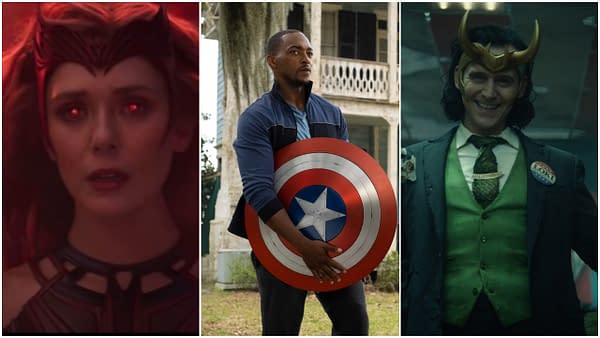
There is a massive difference between the pacing of a Netflix show and the pacing of a show that is released weekly. One only needs to sit down and watch the first episode and only the first episode of a Netflix show to see it. The strongest recent example that this writer has watched was Shadow & Bone, which spent its entire first episode setting up the world and everything around it while doing almost nothing with the plot or the characters until the last five minutes. Netflix was able to pull that off because they assumed everyone would at least watch the second episode right away. Most people do not binge entire seasons in a single day anymore [unless they are entertainment reporters who weren't given screeners trying to get decent coverage by Monday morning, sorry, Ray]. Most people watch two or three episodes at a time. Netflix has adapted to the pacing and storytelling of people finishing a season of their show in less than a week, and, yes, a good portion of the Netflix shows do feel like long movies.
However, there is a downside to all of this as well. There is a running joke that a Netflix show has a shelf life of about a week or two before everyone stops talking about it. How many Netflix Original Series came out in 2021 that you already forgot about. There was the aforementioned Shadow & Bone, but Sweet Tooth came out this year; Pacific Rim: The Black was this year; there are so many shows that you have probably forgotten most of them because the turnaround feels so much quicker. It means that unless you're a The Witcher level hit, your time in the sun isn't very long, and that isn't great for marketing. There isn't any dominating the conversation for weeks or even months on end for most Netflix shows.
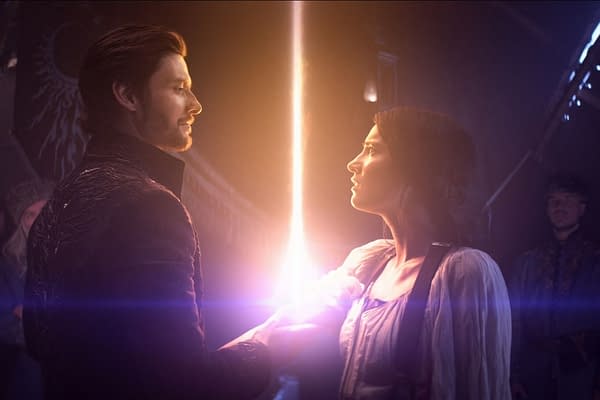
Disney is an old company, and they have only just recently gotten into the streaming game. They have spent years struggling to make ABC and Freeform places to go and watch traditional television, and now they are doing the streaming thing with all of their major properties. However, it appears that Disney wants the cultural dominance of having control of the conversation for weeks on end with traditional weekly releases. However, they also want the freedom to create shows that aren't paced for that sort of storytelling. If you are going to do a weekly show, then each episode needs some sort of beginning, middle, and end, with some sort of movement forward for your season-long story, which also needs to come to an end with your finale. Loki fundamentally missed parts of that formula, but if it had been released all at once, perhaps it wouldn't have felt as egregious.
Perhaps Marvel really does only see their shows as bridges between their movies. If that's the case, they will always be letting viewers down by the end of the season, and, eventually, even the stans will just read Wikipedia instead of actually watching the shows. If Marvel wants to make 6-8 hour long movies, then they need to embrace that entirely and release their seasons all at once. There is nothing wrong with that model, and Disney has plenty of other weekly shows to keep the conversation going. This weekly release with a show paced as if it was a binge model isn't working, though, and it leaves us very concerned for the next crop of shows.
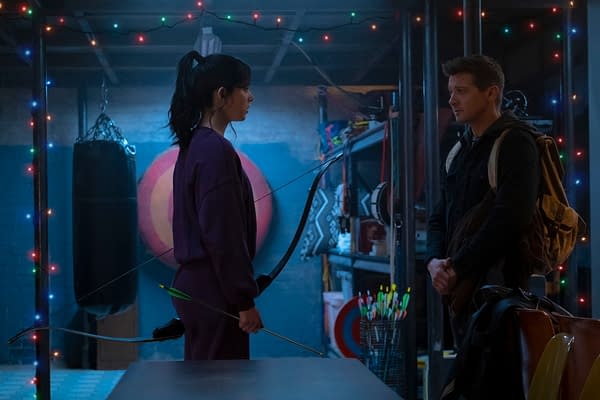
What If? is likely going to be well suited to a weekly TV medium because they are going to short stories told over single episodes, but as a self-proclaimed Kate Bishop fangirl, I find myself concerned about her live-action debut this November. All of the announced Marvel TV shows are in some form of production, and it's far too late to course-correct now. The thing that kneecapped The Defenders on Netflix was the inability to course-correct down the line; The Defenders was nothing but all of the parts from the previous seasons that people didn't like. If all of the Marvel TV shows are written and paced like long movies or shows that should be binged but are set to be weekly, the only thing Disney could do is change their release model. If another finale flops hard, maybe they will, but how many more good shows with amazing potential are going to fall flat on their faces before Marvel and Disney admit that they made a mistake?

Bleeding Cool TV on Instagram: For all of the stuff too random and bizarre to make the site, make sure to follow us on Instagram (with an official launch on June 19): Bleeding Cool TV (@bleedingcooltv).
BCTV Daily Dispatch: For a look at what's going on across the television and streaming landscape, sign up for Bleeding Cool's daily email round-up of the news you need to know here.






